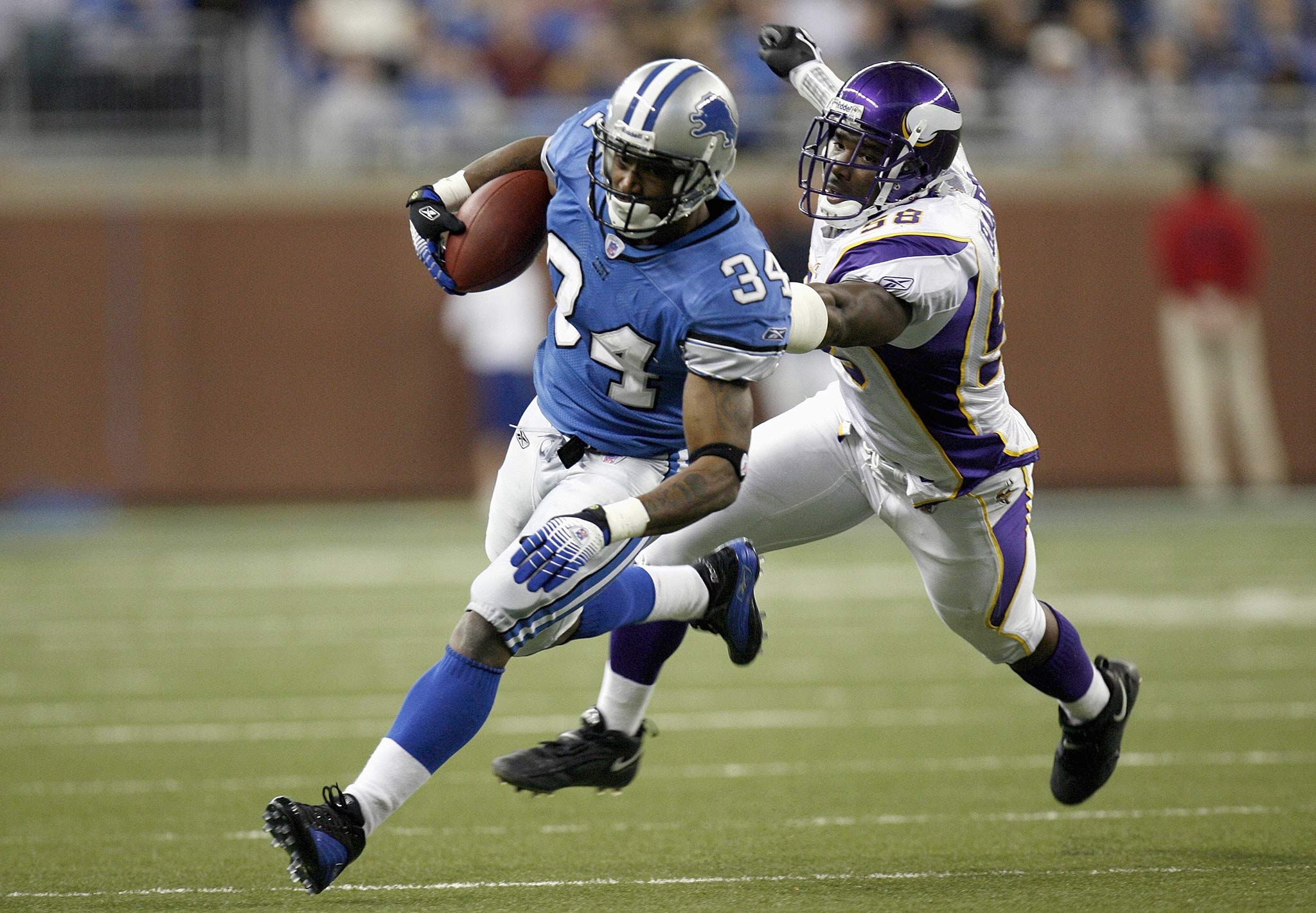The call comes in close to 10 p.m. on Tuesday, September 6.
When it is time to deliver the pizza, the owner of that Beggars, Napoleon Harris III, says he will do the job.
It has been a busy day, and it is closing time, so Harris tells his staff to take off. He's got this one.
Once the pizza is cooked, he locks up and puts the pie in the passenger seat of his Mercedes coupe and makes his way from the restaurant's East 147th Street location along the potholed roads of Harvey, a rundown suburb on the outer fringes of Chicago's storied South Side.
He does this sort of thing pretty often, and he doesn't have to. In his white sneakers and blue jeans and white Beggars T-shirt in the restaurant, he doesn't exactly look like a 37-year-old millionaire and retired NFL linebacker who is married with three kids. His tight haircut and goatee seem free of gray, and he can pass for 10 years younger, still a muscular and imposing 6'3", 260 pounds. His shoulders bulge even under the baggy shirt, and he looks like he could still play, if he wanted.
He works in the restaurant four, five days a week when he can, and he handles everything from the cash register to deliveries to cooking. He is passionate about making the pizza right. He gets in there, gets the crew fired up. "This is how you do it," he'll say to them. "Let me show you."
Among the many ways people in Harvey describe Harris are "hometown hero" and "strong male role model." He is known as such because this is a place people grow up and leave, and Harris could leave as easily as anybody ever has, but he has chosen to stay, to live among the many small townships comprising this suburban bubble of Chicago, all just a few blocks from each other.
Harris went to Thornton Township High School, about 10 minutes from the Beggars restaurant. He was a three-sport star there, though football was his specialty. He had scholarship offers from all over the country but chose Northwestern for its academics. After an excellent career there, Harris was selected No. 23 in the first round of the 2002 NFL draft by Oakland and went on to play seven seasons split between the Raiders, Minnesota Vikings and Kansas City Chiefs.
He doesn't have to be here. Not living here, as he does. Not working in a pizza joint. And certainly not making late-night deliveries, driving down dark and potholed streets, wearing out his Mercedes and spending time away from his family. He could be, as his friend and town spokesman Sean Howard puts it, "North, in a condo overlooking Navy Pier, on Lake Shore Drive."
✦ ✦ ✦

Illinois State Senator Napoleon Harris speaks to supporters during a Democrats Day rally at the Illinois State Fair on August 20, 2015, in Springfield, Illinois. (AP Images)
The 15800 Paulina St. address is less than 10 minutes from Beggars. The little blue house is right on the corner. There is a Tahoe parked in front, and Hines sits on the porch. The 16-year-old and the two men are hidden but ready. One of the men, 20-year-old Malik Mayer, is a massive 6'5", 275 pounds.
No lights are on. It is dark.
It's almost always dark out here at night. Half of the dozen houses on this block are vacant, there are few streetlights and overgrown trees block the stars. An almost invisible street in an almost invisible town.
The most recent census put the Harvey population at about 25,000, of which 76 percent is African-American, 19 percent Hispanic or Latino and 3.6 percent white. It is a poor area, the median income per capita below $13,500, the median household income just over $25,000.
Harvey is one of many areas in southern Chicagoland—many places the country over, for that matter—that feel, to put it in a word, forgotten. "Just forgotten," says Thornton Township principal Tony Ratliff.
Napoleon, however, did not want to forget.
"When people see him, they don't call him 'Senator.' They call him 'Napo.'"
Even as he held down his multimillion-dollar contracts in the NFL, when he had time off, Harris came right back home to Harvey. He worked out at Thornton. He talked with the kids. He bought his pizza places—the Harvey one and another about 15 miles west, in Orland Park—and helped run them while he was still playing. He gave free slices to homeless people. He told local newspapers things like, "This south suburban area is a hidden gem that a guy like myself—with help from others—can turn around."
After retiring from football in 2009, Harris got into politics four years ago, becoming a state senator and working to help the people of Harvey. He even hosts a summer-long job training program right in Beggars itself.
"Reviving the community," Ratliff says.
This is how you do it. Let me show you.
Napoleon's relationship with the community isn't even first-name basis—it's nickname-basis. "When people see him," Howard says, "they don't call him 'Senator.' They call him 'Napo.'"
Given who he is—"the most popular face in town!"—Howard knows that Harris could make an appealing target for, say, a thief with a gun. Harris never worried about it. "Most guys with his celebrity and his political status will probably have a driver or a bodyguard, someone with them," Howard says. "He refuses. He's like, 'This is my hometown—why should I be afraid?'"
✦ ✦ ✦







